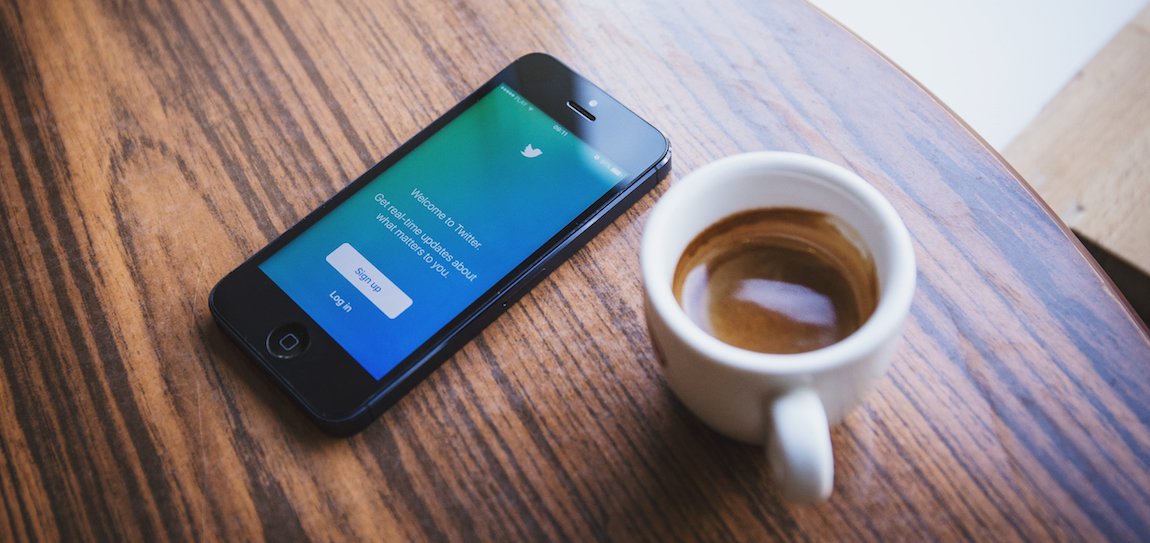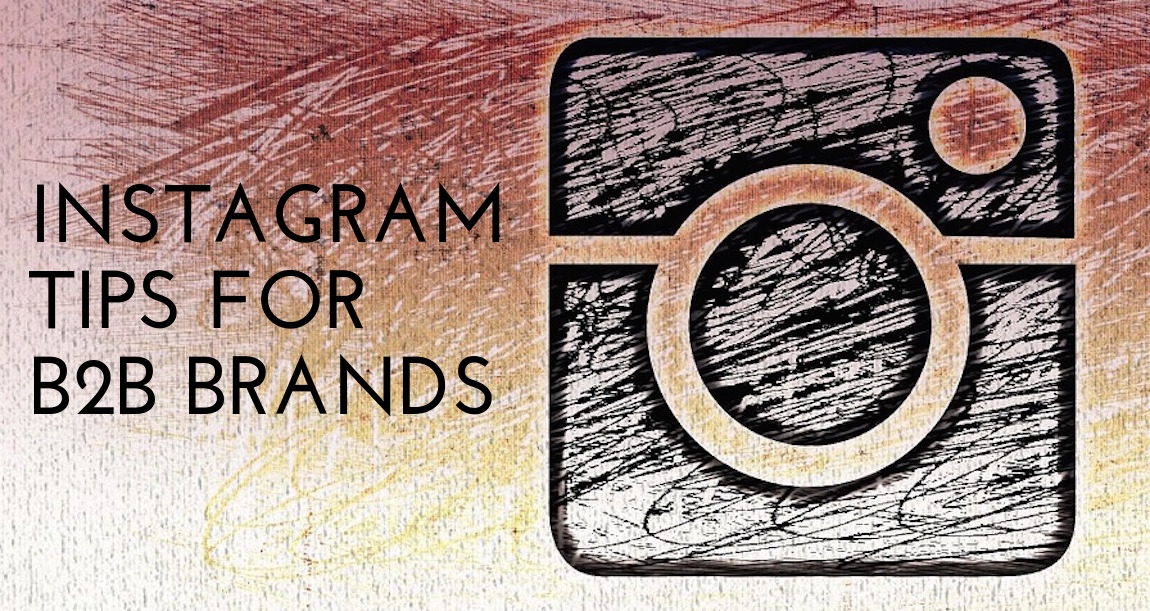B2B Monday Myth: I Don’t Need Twitter Because I’m Already on LinkedIn
by MGB2B
The Myth: I don’t need Twitter because I’m already on LinkedIn.
The Truth: When used correctly, Twitter can be an amazing marketing tool for expanding your business.
Twitter and LinkedIn are easily two of the biggest social media platforms utilized by expanding businesses. However, some believe that LinkedIn is the only platform you need to make lasting connections with potential customers. They simply aren’t aware of the benefits of Twitter for B2B brands. The truth is, Twitter and LinkedIn have different pros and cons, and when you use both, they complement each other quite nicely.
According to the Content Marketing Institute’s report: 2016 B2B Content Marketing Trends, 55% of B2B brands found Twitter to be effective, while 66% found LinkedIn to be an effective social media platform. The difference in number may be rooted in the approach that businesses take on Twitter. Twitter is not a “set it and forget it” platform – it requires planning and attention. When you put the effort into it, Twitter opens you up to a whole new world of users that may not be available to you on LinkedIn at all.
Here Are the Benefits of Twitter for B2B Brands:
- You Can Post As Often As You Like. We don’t recommend that companies post content on LinkedIn more than twice a day, max. On Twitter, you can have several posts a day. In fact, it’s smart for your brand to do so. Especially with the accompanied use of hashtags to grab audiences searching for topics that are related to your business.
- It’s a Great Listening Tool. Twitter is the perfect spot to listen to both your customers and your competitors. The platform makes it very easy to make lists and categorize users (i.e. competitors, industry experts, prospective customers) that post content that is useful to you. You can more efficiently find out what’s going on in the industry, see what your competitors are doing right or wrong, and what your target audience values most – all in real time.
- You Can Use Twitter to Build Relationships. Use retweeting as a conversation starter. If you agree with something a prospect posted or have something to add, you can retweet their post, mention them with the “@” and use that retweet to talk to them about what matters to them (and you) most.
- Or to Fix and Solidify Relationships. Address the concerns of your followers on Twitter to show the world that you are willing to help them out as quickly as possible. This shows that you are interested in remaining completely transparent. Twitter also offers great tips for both addressing customers’ concerns and harnessing the power of their positive reviews on the platform.
- Lead Generation via Ads. While you may attract a few more bots than you would with a LinkedIn ad, Twitter ads can actually be very effective. That’s because you can use keywords to target ads based on relevant conversations people are having on Twitter. You can also use ads for event targeting to grab the attention of prospects when they are the most actively engaged on what’s going on in your industry.
For the most part, you can think of Twitter as bottom-floor networking. Once you get to know someone through Twitter, then you can take the relationship to the next level — LinkedIn. The trick is doing it in a way that is subtle, friendly, and engaging. Plan out your Twitter presence carefully, and it can be a very lucrative part of a full B2B campaign.
Continue Reading8 Tips to Nail Your Next Trade Show
by MGB2B
A trade show is a great opportunity to spread awareness of your product or service, network with others in your field, and make a name for your company within your industry. However, trade shows can also be tricky; you walk into a chaotic room packed with 1,000+ vendors touting their own products and services. How do you stand out?
Follow these tips from pre-show right through the end and you’ll be sure to make an impact.
Pre Trade Show
Tip #1. Get Creative With Your Booth Design. Stand out in the crowd with original booth messaging and design that aligns with your current campaign. This is also your chance to employ some humor in your booth’s messaging. If yo make it funny, make sure it’s also relevant to your product or industry.
Tip #2. Utilize Social Media. Share posts from the event sponsor’s social platforms and start networking with the attendees online before you’re even there. Join the trade show community and share your company voice. Need to work on social? Check out these tips to get your social media rolling.
At the Show
Tip #3. Swag Is Your Friend. Make sure visitors to your booth aren’t walking away empty handed. Don’t just provide a brochure or one-sheeter; give them something they’ll hang on to like a keychain, stress ball, or a thumb drive that’s clearly branded so they won’t forget where they got it.
Tip #4. Host a Contest Or a Giveaway. Engage your booth visitors! Give your sales team the opportunity to interact those who stop by by offering a valued giveaway item such as a free sample of your product or a free consultation. Bonus: if you do this right, it will be a great opportunity to gather contact information from interested attendees and send them right into your sales funnel.
Onsite Promotions
Tip #5. Place Ads in the Show Program Book. Expand your presence outside of the physical event space. Placements in the program book will let those planning their day at the trade show know where you are and will establish your company as a leader in the industry. If you have enough money in your budget, splurge for a little something extra on/in the publication like a belly band or a gatefold. You’ll stand miles apart from your competitors.
Post Trade Show
Tip #6. Enter New Contacts Into Your Database Immediately. It’s important to nurture the contacts you made at the trade show. Create a list of all the emails, business cards, and contacts you gathered and send out a follow-up email 2-4 weeks after the trade show with new insights and a hook encouraging them to do business with you.
Tip #7. Connect on LinkedIn. Similar to the previous tip, continue to grow those new contacts by connecting on LinkedIn with a personalized message referencing your shared trade show experience. Always continue networking after the event is over.
Tip #8. Blog about it. Not everyone got to go to the show, so share your experience. Talk about what you learned, who you met, and what your biggest takeaways from the show were. Establish yourself as an expert with the inside scoop as a starting point for social media conversation.
Trade shows are a lucrative source of new leads for your business. Don’t just set up a booth and hope they come to you, get proactive and turn your experience into a list of qualified leads and ultimately, new customers.
Continue ReadingB2B Monday Myth: B2B and Instagram Don’t Mix Well
by MGB2B
The Myth: B2B and Instagram Don’t Mix Well
The Truth: There are Lots of Creative Ways B2B Brands Can Engage with Instagram Users
Many B2B companies feel it is unnecessary to use Instagram. If you are one of the many, you are likely missing out on a significant chunk of engaged users. The platform has over 500 million users. And when it comes to B2B marketing, Instagram has some of the most engaged users in the world of social media. This is a quality over quantity story.
Here Are 5 Instagram Tips for B2B Brands:
- Don’t Make It about Your Products. It’s a mistake to use Instagram as your product portfolio. Get creative and tell a story about your brand. Build a relationship. Perhaps you tell stories about craftsmen at your company to highlight their attention to detail. There are so many possibilities.
- Talk About Your History or Your Philosophy. Customers and clients connect with your brand more deeply when they see that you are authentic. Or amusing. Or smart. Instagram is where your brand voice can come to life.
- Include People in Your Photos. Whether it’s a buyer or a CEO looking at your Instagram feed, the one thing you can count on is that it’s a person. People do business with people, not with the business itself. So be sure to feature the people that make your organization great wherever you can. For instance, show a photo of your CEO with a quote from him or her. Show hands operating machinery. Post a photo of your Administrative Assistant on Administrative Professionals’ Day. Again, this is an opportunity to show that your brand has a good culture behind it, IN ADDITION to good products or services.
- Use Hashtags. This is important. Hashtags provide prospects a way to find your brand on Instagram. You can jump on the bandwagon with popular business hashtags, or even hashtags for the masses like #MotivationMonday as long as what you post is relevant to your audience. You can use them to promote events you’re hosting or simply to categorize your posts (e.g. #manufacturing, #construction, etc.). Do a little research to find out what is popular in your industry.
- Put Links in Your Bio. When you want to promote something in particular, you can put a link in your company bio and drive people to it in the comments section of the photo you’re posting. You can use this approach to promote events, new partnerships, and even new products, on occasion.
B2B and Instagram can be best friends when the platform is used to project company values and brand character. Emotion, values and brand character play a bigger part than you might think in the B2B decision-making process. And Instagram is a great place too influence that process.
Continue Reading

